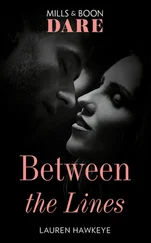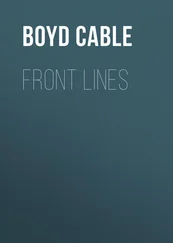Anne Siddons - Fault Lines
Здесь есть возможность читать онлайн «Anne Siddons - Fault Lines» весь текст электронной книги совершенно бесплатно (целиком полную версию без сокращений). В некоторых случаях можно слушать аудио, скачать через торрент в формате fb2 и присутствует краткое содержание. Жанр: Старинная литература, на английском языке. Описание произведения, (предисловие) а так же отзывы посетителей доступны на портале библиотеки ЛибКат.
- Название:Fault Lines
- Автор:
- Жанр:
- Год:неизвестен
- ISBN:нет данных
- Рейтинг книги:3 / 5. Голосов: 1
-
Избранное:Добавить в избранное
- Отзывы:
-
Ваша оценка:
- 60
- 1
- 2
- 3
- 4
- 5
Fault Lines: краткое содержание, описание и аннотация
Предлагаем к чтению аннотацию, описание, краткое содержание или предисловие (зависит от того, что написал сам автор книги «Fault Lines»). Если вы не нашли необходимую информацию о книге — напишите в комментариях, мы постараемся отыскать её.
Fault Lines — читать онлайн бесплатно полную книгу (весь текст) целиком
Ниже представлен текст книги, разбитый по страницам. Система сохранения места последней прочитанной страницы, позволяет с удобством читать онлайн бесплатно книгу «Fault Lines», без необходимости каждый раз заново искать на чём Вы остановились. Поставьте закладку, и сможете в любой момент перейти на страницу, на которой закончили чтение.
Интервал:
Закладка:
“Laura, get down now and let Papa work,” I would hear my father say stiffly from his study. “You’re getting that jam all over my shirt. You’re far too big to sit in laps. You should see yourself; it’s really very unattractive. And don’t cry ! You cry more than any little girl your age I ever saw. Your sister doesn’t cry. You should take a leaf from her book and try smiling every now and then. People would treat you a lot better, I can tell you. Oh, for heaven’s sake , Laura Louise! Merritt! Come in here and get your sister, will you please?”
And once again I would take my beautiful, fragmented little sister, dancing and sobbing her rage and hunger, up to her room and cuddle her and shush her and whisper silliness to her, and soon she would let me dry her tears and wash her face and brush out the tangled chestnut curls that were so like our mother’s, and in an hour she would be off again, flouting rules, testing limits, pushing, pushing, pushing.
“It’s not really fair to you,” my father said in the spring of my last year in high school, after I had come back downstairs to watch TV with him after settling a wailing Laura into bed. “You’re only seventeen. You don’t have much of a life of your own, do you? It’s mostly studying and Laura. But I don’t know what I’d do without you. You’re the only one who can handle her. I admit she’s too much for me. I don’t know, maybe if her mother had lived…what in the world are we going to do next year when you go to school? Should I put her in boarding school?”
“Oh, Papa, she’ll only be eight then,” I said.
I was flattered at the adult tone of the conversation and felt mature and important to be consulted about the future of my little sister. I knew that for once I had his entire attention and that he would probably take my advice. I was the one, after all, who knew her best. I sensed suddenly what sort of relationship we might have had if I had been alone with him in the house, without the hovering, importunate Laura to define and absorb me and isolate him. I knew too that I could probably create that relationship if I told him to send her away.
But in my mind there was the white rush of wings beating at windowless walls and a thin silver wailing from an empty, dark place. I knew that boarding school would send Laura mad or kill her. My stomach literally turned over. My first taste of power frightened me badly.
“No, I don’t really think that would be good for her,” I said judiciously, hoping he could not hear the pounding of my heart. “Maybe we should get someone to come in and take care of her, a live-in housekeeper, or something. Somebody younger, closer to my age so she wouldn’t seem strange. Then Felicia and the others could go on and do their work. I could ask our guidance counselor at school about it. She knows about things like that. I could even interview people, if you wanted me to.”
“See? You always know just the right thing to do,” my father said in relief, and smiled at me, and I felt the tremor of my answering smile begin on my mouth. We turned back to John Chancellor with relief, like two old married people who had just settled, indulgently, the problem of a troublesome child.
I found a young black woman to come and stay with Laura after school and half-days on Saturday. Matilda was a lunch server at my high school cafeteria and had the same hours free that Laura did. She was only two years older than I, but she seemed far ahead of me, across a chasm of adulthood. She had cared for a half-dozen younger siblings and cousins, and she had a matter-of-fact, cheerful firmness about her that soothed me and seemed, for a while, to be just the anchor to earth that Laura needed. She stopped a good bit of the acting out at her elementary school and much of the needy fussing at home. During that time it was easy to love Laura; her awful emptiness seemingly filled, we saw more of her quicksilver charm and the vein of whimsy that lay deep inside her. Her imagination was lightning quick and her ability to mime and posture was funny and true. And, her face unbloated by tears and rage, she was beautiful enough to turn heads in crowds. She was all my mother, with pale, thick, magnolia-petal skin that she never allowed the sun to stain, and Mother’s slanted sherry-colored eyes and rich spill of chestnut satin hair. Laura’s hair was glorious. She wore it tied in a high ponytail, cascading down her back, or let it fly free in shining curtains around her face. She never let anyone cut it past shoulder length, and even that was an occasion to be feared, fraught with tears and temper. The first time she had it bleached, when she was a sophomore at Westminster, I cried.
“It’s not you anymore,” I said.
“Au contraire,” she said, trying out her appalling first-year French. “It’s exactly who I am. The other was somebody else.”
But when I went away to LSU she changed again, back to the frantic, hungry small bird we had known, and began the trapped-bird battering at everyone and everything once more. We could get no sensible explanation from her for the change, except that she didn’t feel safe.
“I feel like I’m walking way up high with nothing to hold on to,” she would cry over and over. “I feel like I’m going to fall forever and ever.”
“What would it take to make you feel safe?” I said desperately. Matilda was threatening to quit if Laura did not stop shrieking and plucking at her and dogging her every step. My father had the boarding school brochures out again.
“You! I want you! I want you to come back home,” Laura wept. She was shuddering with sobs and retching. There was no doubting her sincerity. At Christmas I moved back home and began attending day classes. My father’s gratitude and Laura’s subsequent blooming were enough, I thought, to make up for the dorm and campus life that I forswore. I made a number of new friends anyway. I dated a good bit. I joined a sorority. And my grades undoubtedly benefited. I made Phi Beta Kappa, and basked in the modest glow of a number of minor achievements and awards. At my graduation, my father’s proud smile and Laura’s shining eyes gave me a salt lump in my throat and a tickle in my nose.
My graduation picture shows a tall, arresting, stooped man with thick brown hair just beginning to go gray at the temples; a tall, slightly stooped young woman in a cap and gown who looks ridiculously like him, down to the unruly shock of curly ash-brown hair and the tilted nose and sharp cheekbones; and a young girl of such vivid, blinding beauty that you cannot look away from her. She might be a budding movie actress graciously posing with tourists. Her presence captures the camera and eclipses the other two. I noticed anew that spring Saturday how eyes followed her, in her new mini that showed a great deal of white leg at the bottom and a precocious swell of white breasts at the top.
I also noticed that she was aware on every inch of her of the eyes. I remember feeling a small frisson of dread. Despite the calming presence of Matilda, there had been enough transgressions, tears, conferences with teachers, trips to smooth things over in her principal’s office, promises. Always, Laura insisted that she had been wronged and misunderstood; always the contrition was heartfelt and her fear of reproach real. And always I was the one who went, who apologized, who smoothed, who promised. I did not need trouble of a sexual nature from her, but on that day I knew, as portentously as if I had read it in sheeps’ entrails, that I was going to get it.
That night, after he had taken us to dinner in a new, baroquely awful French restaurant to celebrate and Laura had gone, reluctantly, to bed, my father told me he was getting married again. I sat still and looked at him, feeling a sort of percussion against my face as if there had been a silent explosion in the room. My mind was empty and ringing with it.
Читать дальшеИнтервал:
Закладка:
Похожие книги на «Fault Lines»
Представляем Вашему вниманию похожие книги на «Fault Lines» списком для выбора. Мы отобрали схожую по названию и смыслу литературу в надежде предоставить читателям больше вариантов отыскать новые, интересные, ещё непрочитанные произведения.
Обсуждение, отзывы о книге «Fault Lines» и просто собственные мнения читателей. Оставьте ваши комментарии, напишите, что Вы думаете о произведении, его смысле или главных героях. Укажите что конкретно понравилось, а что нет, и почему Вы так считаете.












